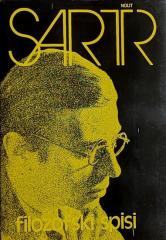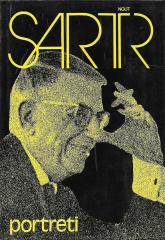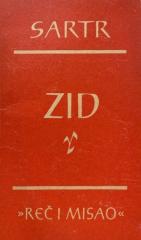Jean-Paul Sartre
Jean-Paul Sartre (1905–1980) was a French philosopher, writer, playwright, and political activist, the most prominent representative of existentialism and one of the key figures of the 20th century. He studied philosophy at the École Normale Supérieure in Paris, where he met his long-time partner and intellectual companion, Simone de Beauvoir.
Sartre's philosophy emphasizes freedom, individual responsibility, and the absurdity of human existence. His best-known philosophical work is Being and Nothingness (1943), in which he develops the concepts of "being for oneself" and "nothingness" as central aspects of human consciousness. In addition to philosophy, he was involved in literature - his novel Nausea and the play Behind Closed Doors reflect his philosophical ideas through characters faced with their own choices and consequences.
He was politically active, especially after World War II, when he rejected bourgeois values and supported leftist movements. In 1964, Sartre refused the Nobel Prize for Literature, believing that institutional recognition compromises the writer's freedom.
His influence spread over many disciplines – philosophy, literature, psychology and politics. He died in 1980 in Paris, leaving a strong mark on modern thought.
Titles in our offer
Filozofski spisi
Portreti
Zid
"The Wall" is a collection of five existentialist short stories by Jean-Paul Sartre, first published in 1939, which address the absurdity of human existence, freedom, fear, death, and moral choice.


